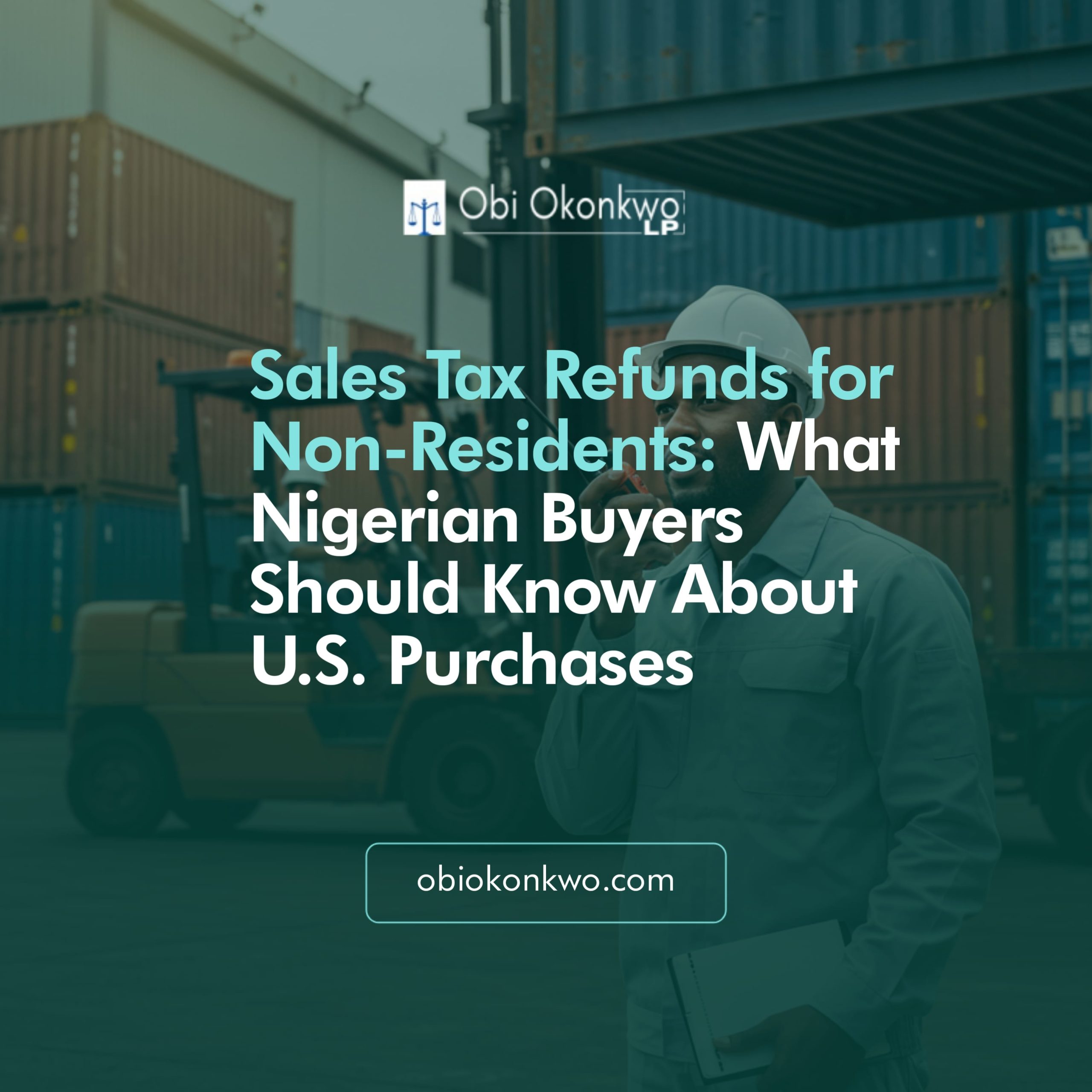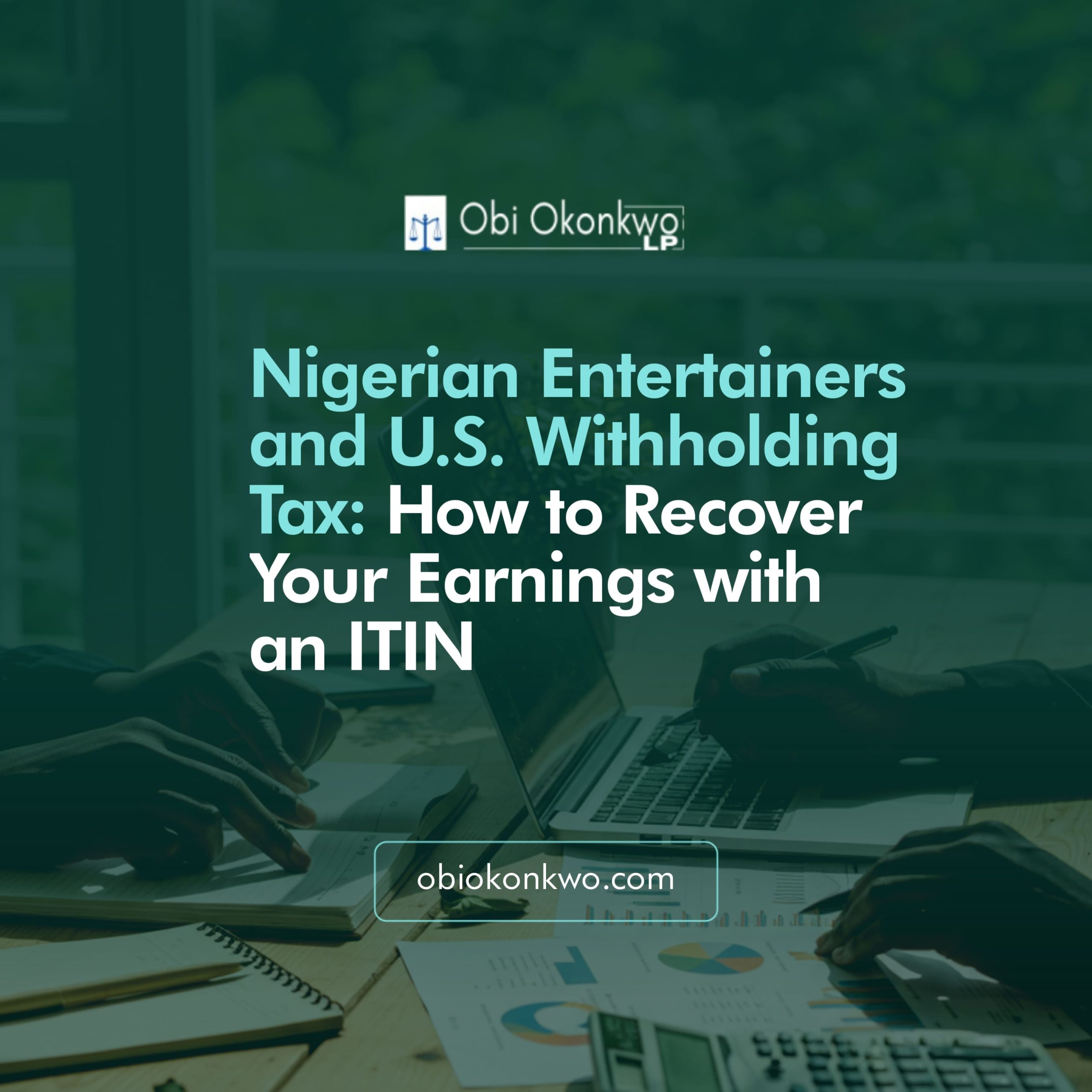When Nigerians buy goods or services from the United States either for personal use or for business they’re often charged U.S. sales tax. This can happen when shopping in person during visits or even when making purchases online. While this tax is routine for U.S. residents, it often feels unfair to foreign buyers who do not live in the U.S. or use the goods there.
The good news? In some cases, you can recover that tax or avoid it entirely legally. But the rules vary by state, and the process can be tricky.
What Is U.S. Sales Tax?
Sales tax in the U.S. is not a federal tax. Each of the 50 states sets its own rules. For example:
• California charges a base sales tax of 7.25% (with local rates raising it to over 10% in some cities).
• New York charges around 8.875% in NYC.
• Texas charges 6.25%, plus up to 2% locally.
• Oregon, by contrast, charges no sales tax at all.
This means if you, a Nigerian buyer, purchase a laptop from a store in Los Angeles, you may pay up to 10.25% in sales tax about $205 on a $2,000 MacBook.
Now the real question: Can you get that tax back?
Situations Where Nigerian Buyers May Recover or Avoid Sales Tax
- Export Purchases (Exemption at Time of Sale)
If you’re buying goods in the U.S. that are shipped directly by the seller to Nigeria (or any country outside the U.S.), you may be exempt from paying sales tax at the time of purchase.
Example:
You order 50 units of fashion items from a supplier in Texas, and they ship the goods directly to Nigeria using FedEx. You inform them it’s an export sale. In Texas, sales tax does not apply to goods shipped directly out of state or abroad, and the seller can document this using a bill of lading or export proof.
Caveat: The seller must agree to this and follow the documentation process. If you carry the goods yourself, tax is often still applied.
- Tourist Tax Refund Programs (In-Person Shopping)
Some U.S. states offer sales tax refunds to international tourists on certain purchases made during their visit.
Example:
If you travel to Louisiana, shop at participating retailers, and present your non-U.S. passport, you can apply for a sales tax refund before leaving the state either at the airport kiosk or online.
[Visit: www.louisianataxfree.com]
Similarly, Texas has refund centers in cities like Houston and Dallas that process refunds for international travelers. You must:
• Shop at participating stores
• Present your passport and visa
• Show flight details proving departure within 30 days
• Pay a processing fee (usually deducted from the refund)
Note: Most other states (like California or New York) do not offer such tourist refund programs.
- Business Resellers (Using Resale Certificates)
If you’re a Nigerian business buying goods for resale in Nigeria, you may be able to avoid U.S. sales tax altogether but only if you present a valid resale certificate.
Example:
Your fashion business in Lagos buys $10,000 worth of designer shoes from a wholesaler in Florida. If you’re registered in the U.S. or working through a local business entity, you can provide a Florida Resale Certificate and avoid paying sales tax, because the goods are not for end use but for resale abroad.
This typically requires:
• U.S. entity or tax ID
• Sales tax registration in that state
• Willingness of the seller to accept the certificate
Note: Most foreign buyers are not eligible unless working with U.S.-based intermediaries or legal representatives.
- Refunds on Tax Paid in Error
In cases where tax is wrongly charged on tax-exempt purchases (like exports), buyers may request a refund either:
• From the retailer directly (within a limited time), or
• From the state tax authority (which often requires a U.S. address and documentation)
Example:
You bought media equipment from a California store, had it shipped directly to Lagos, and still got charged sales tax. You can file a Claim for Refund with the California Department of Tax and Fee Administration (CDTFA) using Form CDTFA-101.
Nigerian Tax Implications
Remember, under Nigerian tax law, individuals and businesses are generally taxed on worldwide income if they are resident in Nigeria. So even though you may recover U.S. sales tax or reduce your cost of goods, you must still account for applicable duties and taxes (like Import VAT and Customs Duties) when the goods arrive in Nigeria.
Consulting both U.S. and Nigerian tax professionals is essential to stay compliant and optimize your transactions.
Navigating U.S. sales tax as a Nigerian buyer especially for high-value purchases requires strategy. Whether you’re an importer, retailer, tourist, or creative entrepreneur, there are legal ways to avoid or recover sales tax and keep your costs down. But success depends on knowing:
• The rules of each state
• Your buyer status (tourist, business, exporter)
• The documents required
Rather than leaving money on the table, work with a tax lawyer who understands both sides of the Atlantic. You might be entitled to a refund you never knew existed.



